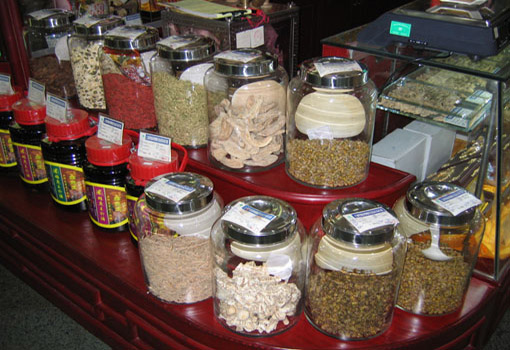Herbal medicine, sometimes referred to as Herbalism, Botanical medicine or Herbology, is the use of plants, in a wide variety of forms, fo...
What is the history of herbal medicine?
Plants had been used for medicinal purposes long before recorded history. Ancient Chinese and Egyptian papyrus writings describe medicinal uses for plants. Indigenous cultures (such as African and Native American) used herbs in their healing rituals, while others developed traditional medical systems (such as Ayurveda and Traditional Chinese Medicine) in which herbal therapies were used. Researchers found that people in different parts of the world tended to use the same or similar plants for the same purposes.
How are herbs used?
The use of herbal supplements has increased dramatically over the past 30 years. Herbal supplements are classified as dietary supplements by the U.S. Dietary Supplement Health and Education Act (DSHEA) of 1994. That means herbal supplements -- unlike prescription drugs -- can be sold without being tested to prove that they are safe and effective. However, herbal supplements must be made according to good manufacturing practices.
The most commonly used herbal supplements in the U.S. include echinacea (Echinacea purpurea and related species), St. John's wort (Hypericum perforatum), ginkgo (Ginkgo biloba), garlic (Allium sativum), saw palmetto (Serenoa repens), ginseng (Panax ginseng, or Asian ginseng; and Panax quinquefolius, or American ginseng), goldenseal (Hydrastis canadensis), valerian (Valeriana officinalis), chamomile (Matricaria recutita), feverfew (Tanacetum parthenium), ginger (Zingiber officinale), evening primrose (Oenothera biennis), and milk thistle (Silybum marianum).
Often, herbs may be used together because the combination is more effective and may have fewer side effects. Health care providers must take many factors into account when recommending herbs, including the species and variety of the plant, the plant's habitat, how it was stored and processed, and whether or not there are contaminants (including heavy metals and pesticides).
Is herbal medicine good?
Herbal medicine is used to treat many conditions, such as asthma, eczema, premenstrual syndrome, rheumatoid arthritis, migraine, menopausal symptoms, chronic fatigue, and irritable bowel syndrome, among others. Herbal supplements are best taken under the guidance of a trained health care provider. Be sure to consult with your doctor or pharmacist before taking any herbs.
Is it safe?
Used correctly, herbs can help treat a variety of conditions and in some cases may have fewer side effects than some conventional medications. But because they are unregulated, herbal products are often mislabeled and may contain additives and contaminants that aren' t listed on the label. Some herbs may cause allergic reactions or interact with conventional drugs, and some are toxic if used improperly or at high doses. Taking herbs on your own increases your risk, so it is important to consult your doctor or pharmacist before taking herbal medicines.
Some herbal supplements, especially those imported from Asian countries, may contain high levels of heavy metals, including lead, mercury, and cadmium. It is important to purchase herbal supplements from reputable manufacturers to ensure quality. Talk to your health care provider for more information.
If you are interested in a proper training in herbal medicine then you can look through the schools listed on this website.
Here are some Herbal Medicine Pictures
 |
 |
 |
 |
 |
 |
 |
 |








No comments